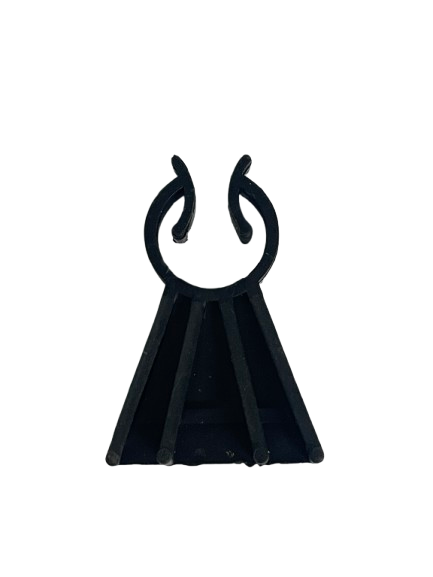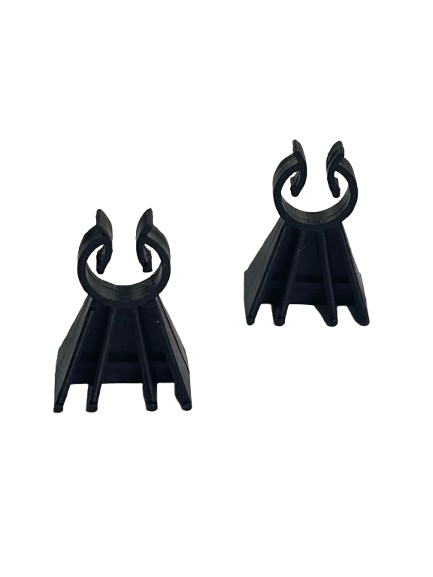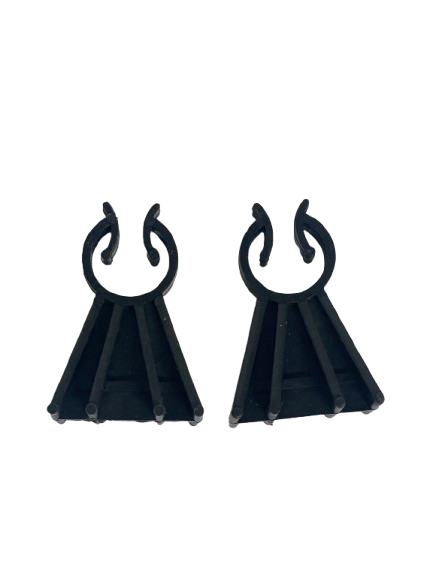


Plastic rebar spacers (also known as concrete cover blocks) are plastic supports used to fix rebar positions and ensure proper concrete cover thickness. They are typically made of high-strength, corrosion-resistant plastics (e.g., PP, PVC, or HDPE) and widely used in cast-in-place concrete structures such as slabs, beams, columns, and walls.
Functionality:
Rebar Positioning: Maintains correct rebar placement in concrete to prevent displacement.
Cover Thickness Control: Ensures adequate concrete cover to protect rebar from corrosion.
Enhanced Durability: Reduces rebar exposure, extending structural lifespan.
Construction Efficiency: Replaces traditional cement spacers, enabling faster installation.
Applications:
Slabs/Flooring: Supports top-layer rebar mesh for uniform concrete cover.
Beams & Columns: Secures main rebars and stirrups to prevent shifting during pouring.
Shear Walls: Maintains spacing between double-layer rebar for seismic resistance.
Bridges & Tunnels: Corrosion-resistant, suitable for humid or high-salinity environments.
Precast Elements: Standardized production improves precision in modular construction.
Advantages:
Corrosion Resistance: Plastic material prevents rust, outperforming metal spacers.
Lightweight & Easy Installation: Quick snap-on or tie-wire fixing.
High Precision: Standardized sizes ensure consistent concrete cover.
Eco-Friendly & Cost-Effective: Recyclable, lower long-term cost than cement spacers.
High Load-Bearing: Some models support over 200kg, suitable for heavy-duty projects.
